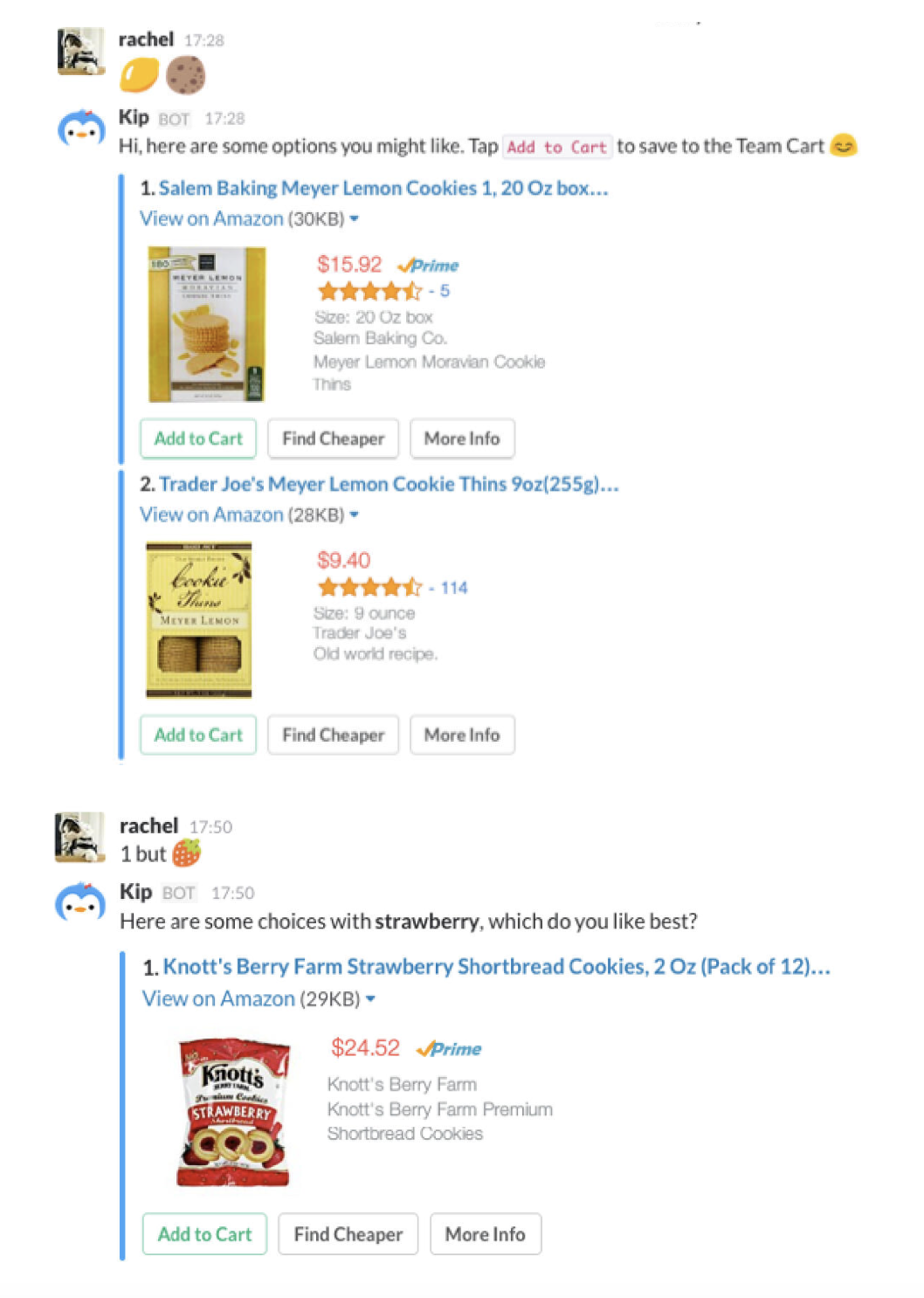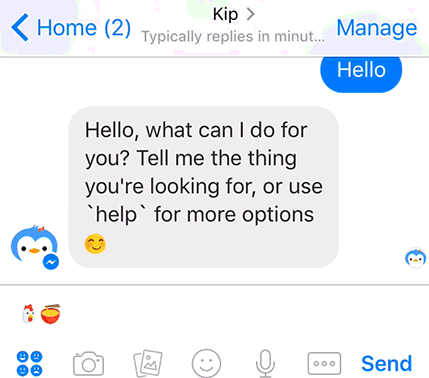2014-2018
I co-founded Kip, a SaaS startup offering an AI agent tailored for group shopping and procurement, particularly for office environments. Kip integrated seamlessly with chat platforms like Slack and Facebook Messenger to streamline group orders for food and other supplies.

Purpose and Efficiency
Kip was developed to leverage AI where it provided genuine benefits to both customers and store owners. With a unique persona, the AI agent efficiently collected, collated, and consolidated orders, outperforming traditional messaging and social media methods.

Designing for Conversations
Kip facilitated transactions and user engagement through a conversational AI persona across multiple messaging platforms. Unlike a website, a conversation lacks menus or navigational tools and can be multi-temporal, with replies being instant or delayed.
To address this, we re-imagined conversational experiences by developing a unique UX/UI language. This included:
-
Stickers as Conversational Landmarks: Used to anchor users within the conversation, making it easier to navigate and understand the flow of messages.
-
Conversable Forms: Dynamic forms within the chat that updated based on user input, reducing message clutter and enhancing the user experience.
-
Persistent Menus: A simple "Home" button that allowed users to access menu options at any point in the conversation, providing continuity and ease of navigation.
⠀⠀⠀⠀⠀

Café Mode

Stickers as Landmarks

Shopping Mode
Group Consensus Engine
To optimize group consensus and purchasing, we developed a group consensus engine. Instead of individual searches, all users input their preferences first. The AI then presented options that best matched the group's collective preferences.

This approach facilitated faster decision-making and group consensus through parallel processing and transparent voting.

⠀⠀

3-Choice Decision Model
Addressing the problem of over-choice and leveraging the psychology of matching, we developed a ‘3-Choice Model’. Sets of three options were presented to users, which:
- Reduced cognitive load by offering manageable choices.
- Enhanced flexibility across multiple interfaces (mobile, desktop, etc.).
- Increased engagement by clearly parsing user intent.
The AI agent guided users through their choices by asking for preferences and suggestions, mimicking a natural conversational flow.

⠀⠀

Pictograph to NLP Search
Traditional search methods rely on text and NLP to understand user intent. Kip innovated by using emojis for search and discovery of products. Emojis and stickers acted as symbolic substitutes for products, with their meanings contextually extracted from messages and parsed into related products.
Users could also enter facial expressions or stickers, which were algorithmically parsed to produce relevant results.

⠀⠀

Summary
Kip leveraged AI to enhance group shopping experiences, focusing on food and procurement via popular messaging platforms.
Its innovative solutions for conversational UX, group consensus decision-making, and pictograph-based search made it a valuable tool for efficient and collaborative office shopping.
Kip optimized group consensus and purchasing processes, making collective decision-making and order placement easier and more efficient.
Further Reading
- What Bots Can Do, that websites and apps can’t
- Emoji + Image Understanding for Bots
- Why the Future of Bots Will Be Multi-Platform
- Designing Chat for Commerce
- Kip Café : Delivery for Teams
- Why Bots are the Next Industrial Revolution
- Open Design Standards for Chat UX